Reporter’s Diary: An Encounter With The ‘Gun Merchants’ Of Southwest Nigeria
Hunting rifles, single and double-barrel guns are cheap to own in various states of Southwest Nigeria. For many owners, they believe that access to personal guns will protect them better than authorised security operatives.
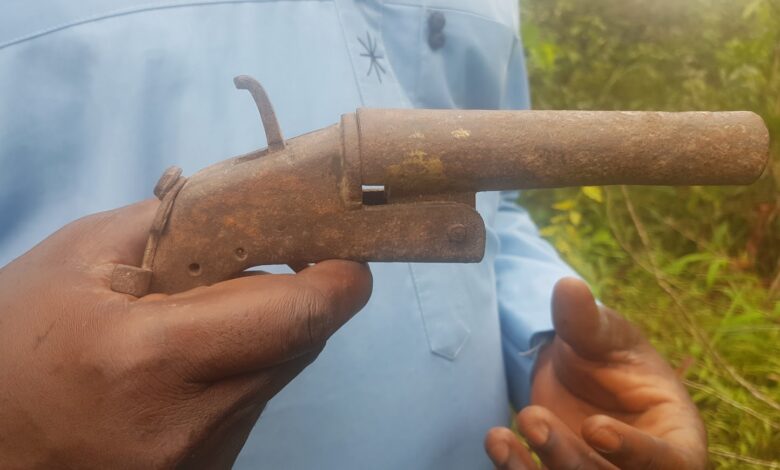
Prior to our meeting, I have had a series of phone conversations with Sheriff Alamu* on how he possessed his firearm as a top member of Supreme Eiye Confraternity a.k.a National Association Of Airlords but he declined to speak.
Soon, we arranged a meeting after assuring him of my cooperation. He promised to show me the guns in his possession, how it was obtained and even take me to the cult group armoury in Ogun State, Southwest Nigeria.
Since there was a fee attached to the assignment, he became more eager than I envisaged.
“Aren’t you coming again?” he said in one of our phone calls after my first trip failed. Speaking with a strong Yoruba accent, Sheriff warned me not to deceive him.
Welcome to Abeokuta
Though there are various laws that prohibit the operation of secret cults and similar activities, the violent attacks among such groups remain the order of the day in Southern Nigeria.
In recent time, Ogun State seems to have murdered peace as cult-related killings increase, particularly in Abeokuta, the state’s capital. As authorities look away, the criminal gangs are becoming bolder, killing rival gang members.
With no respect for constituted security operatives, they strike in broad daylight in high-density areas, damaging properties of innocent citizens with assorted weapons.
In rivalry fights that lasted for several months, Eiye and Aiye cults made Sagamu ungovernable as they battled for supremacy, leading to the death of no fewer than 30 people in July.
Sheriff, popularly referred to as “Capon” by his gang members, told me that the group was formed “to uphold the core nature of the African culture with a commitment to excellence” but has become an “organised crime group” due to lack of orientation by many members.
On getting to Abeokuta, he linked me with a motorcyclist whom he later claimed he uses for special assignments such as buying hard drugs and other illegal activities.
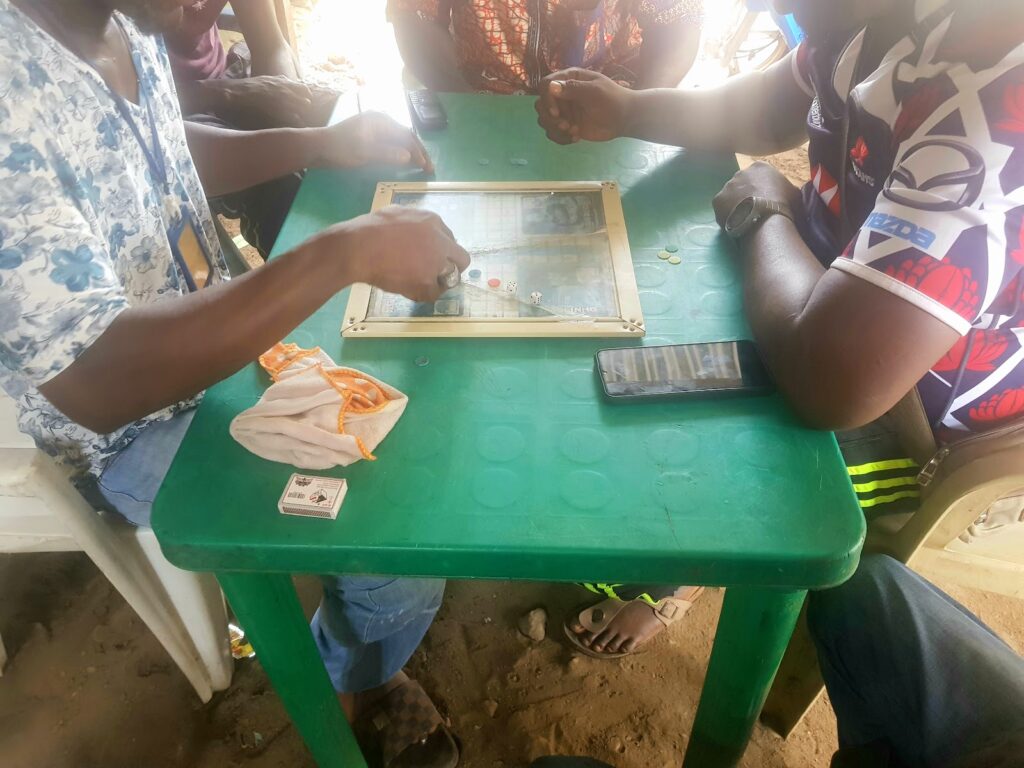
On getting there, I saw a typical beer parlour with tables and chairs but in a hard to reach venue. Most of the people here were thugs or cultists.
“Welcome to our world… na we dey run things here,” Sheriff said as he introduced me to four other members who were gambling.
Not all of them knew the reason for my visit. He lied to them that I am one of his brothers and lead the Eiye confraternity in my school. I was applauded and mandated to buy beer and marijuana for them.
Renegotiation
Before my arrival, the Sheriff and I had agreed that with the sum of ₦20,000 ($45.08), he would show me two guns and explain how he obtained them.
Two hours after my arrival at the cultists’ base, he did not talk about our assignment, instead he was engrossed with gambling alongside his friends. When he noticed I was no longer comfortable with the delay, he called me for a meeting in an uncompleted building not too far from their spot.
“This assignment is a dangerous one and I will collect ₦50,000 ($112.61) from you before showing you any gun,” he said without apology.
I screamed immediately, protesting that we didn’t have such agreement before I left my destination. “Go and carry your bag and leave my base if you cannot pay.” He waved a hand dismissively.
No doubt, this development had ruined my day already. Going back home would mean a waste of effort. Now it was time for me to show “Capon” that I was not a novice on the ‘street’.
“Egbon, ko ye ko ma lo bayiii ooo. Adehun wa ko re nah, ki ni e fe kin so nibi ise mi. Walahi, e ti te oju mi mo le. Ko de da bayen ooo. Mi o ni oye yen ooo, Ajeh. (Brother, things aren’t supposed to be like this. This wasn’t our agreement. What should I tell my bosses at work? You’ve disappointed me because I don’t have that money,” I protested.
After a moment’s back and forth, he agreed to collect ₦35,000 ($78.84).
Forbidden forest?
Having sealed a new agreement, Sheriff asked me to be patient for 30 minutes so that his motorcyclist, who had gone to pick up his son from school, could take us to the place where the guns were kept. Soon, the motorcyclist arrived and we proceeded to a forest he claimed to be forbidden to non-cultists.
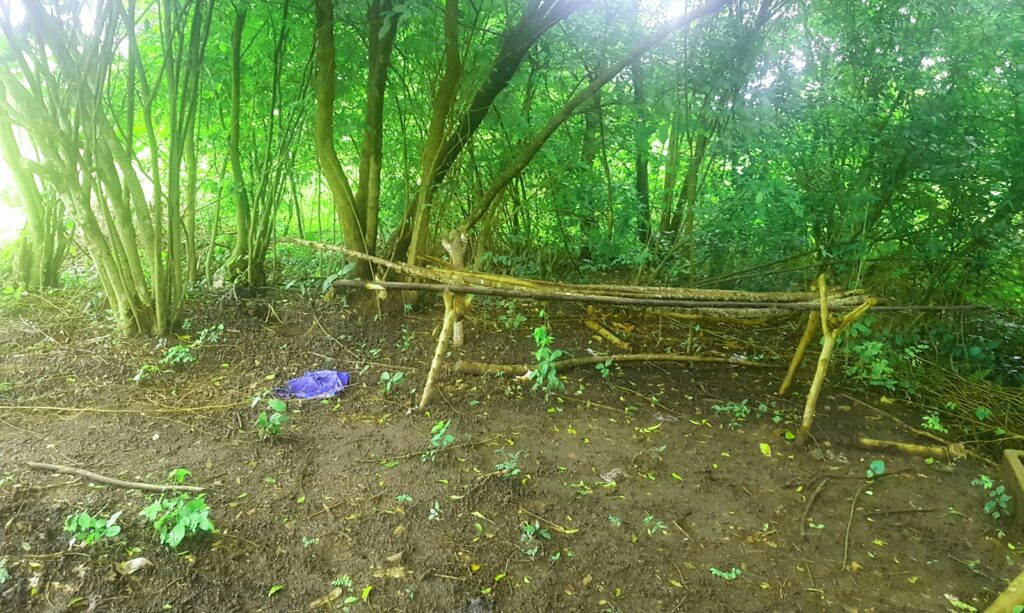
Our journey to the forest where the cultists usually have their meetings in the Lafenwa area of Abeokuta started around 4:30 p.m. as we journeyed for nearly an hour on a bumpy road without a human habitation in sight.
Suddenly afraid, I thought of protesting but Sheriff assured me of safety till we got to the forest where Eiye confraternity in Lafenwa planned all their attacks.
“Bring my money,” he instructed me. “Wait here for me. I will be back in five minutes.”
I was left alone in the bush for nearly 20 minutes. He did not show up as promised. My senses told me to run but to where? No answer. I checked my phone to possibly drop my location for relatives and editors but there was no network. It was at that point that I knew I was in a metaphorical graveyard.
Minutes later, he arrived empty handed. Alas! The locally made pistol was kept in his underwear. This guy must be an expert, I said to myself as he brought out the gun.
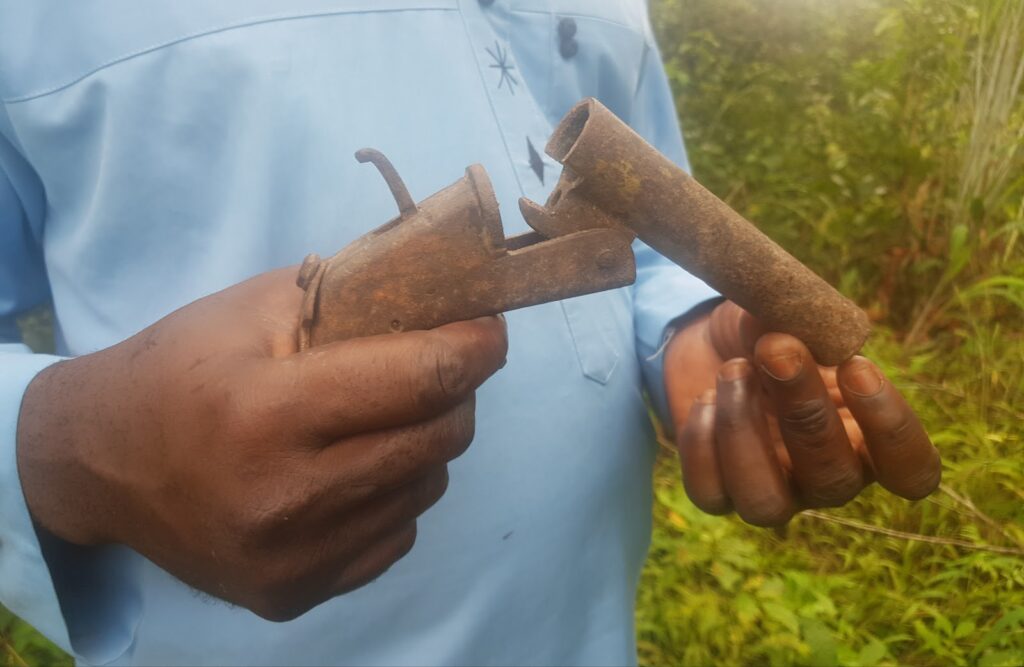
“It’s due for service and I should do so soon,” was the first thing he said after bringing out the gun. When I asked why and how he obtained the gun, he simply said it was for self defense.
“I am using the gun for security purposes and there will still be war in Nigeria. I have been in possession of a gun for more than 15 years but I hardly ever take it out except during war.”
Asked if he had ever killed anyone in the cause of trying to defend himself or a rival cultist, Sheriff was economical with his response.
“It’s been seven years since I used it to harm anyone,” he simply replied. “Even if there is a ban on guns, I will still carry guns.”
He also refused to answer my question on how he possessed the gun. When I reminded him that he was supposed to take me to the armoury, his voice became stronger, saying he would not trust me enough to do so. This was breaching the agreement we had.
In a telephone conversation, a fellow Eiye member in Lafenwa said “as a cult member, it is easier for one to get a gun and there’s a restricted area in Abeokuta where they make guns. The reason why he did not show you an English-made gun is because the price is high.
“We also use guns for land grabbing and work for politicians. I’m being sincere with you as a brother. There are times we also rent guns when we want to attack our enemies. If you see any cult member being hailed by others in the community, it is because of his access to guns. The reason why you are number one as a cultist is because of the number or strength of guns you possess.”
Midnight discussion in Osogbo
I couldn’t meet Dele Adio*, a notorious thug and member of Aiye Confraternity in Osogbo, capital of Osun State until 12:00 a.m. He fixed our meeting for midnight.
“I am wanted. Sorry to fix this time of the night,” he said after our meeting at the Dada Estate area of Osogbo.
“There are different kinds of guns. I have handled hunter guns and I have English as well. I possessed a gun because of rival groups and it has saved my life on several occasions.”
Dele said he feels more secured with his gun than being escorted by authorised security operatives on highways. “I travel late at night and with the level of insecurity today, I just need to check how many bullets I have at hand.”
Asked how most of his cult members get their guns, he said “from a local blacksmith.”
We later met the following morning after which he showed me his gun and led me to blacksmiths making guns in Osogbo.
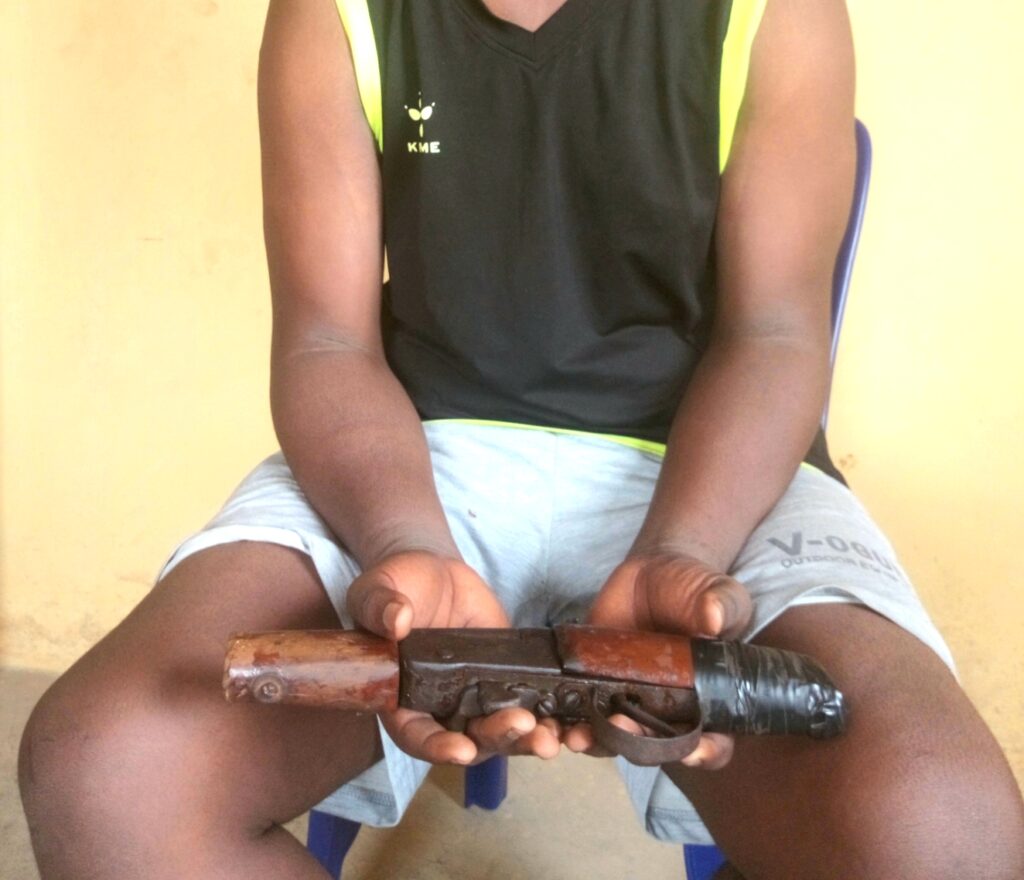
“After God, it’s gun”
I got to Amuda’s workshop early enough. I met the 50-year-old man making a local gun, hopefully f0r one of his vigilante clients. For him, he would continue to make guns for those who promise him their intention is ‘self-defense’.
Though a Polytechnic graduate, he prefers the blacksmith job he inherited from his late father.
“Firstly, I do guns for the protection of human beings who are well-behaved and not miscreants. The purpose of guns is to defend and kill an enemy. When in the hands of a well-behaved person, he/she may use it for protection, and miscreants will be afraid of confronting such a person,” he said.
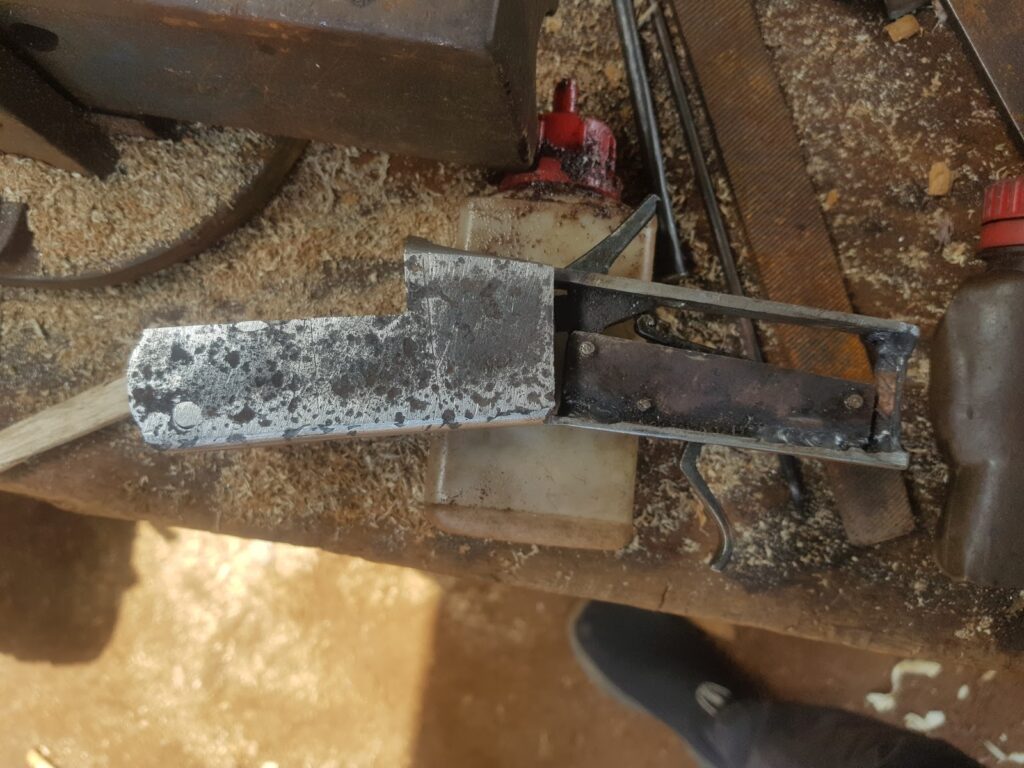
Asked how much it cost to make a gun, Amuda simply responded: “With ₦15,000 ($33.79), you will get a local [dane] gun and a single barrel with long range is sold for between ₦25,000 ($56.33) and ₦30,000 ($67.58).
Amuda believes that if guns are legalised in Nigeria, insurgents would be afraid of attacking citizens recklessly.
“We won’t have kidnappers, touts, and thieves because they will be afraid of what is in our hands. The reason why they carry out their operations successfully is because of the guns in their hands. If we stand face-to-face, many of them [criminals] won’t stay. After God, it is a gun.”
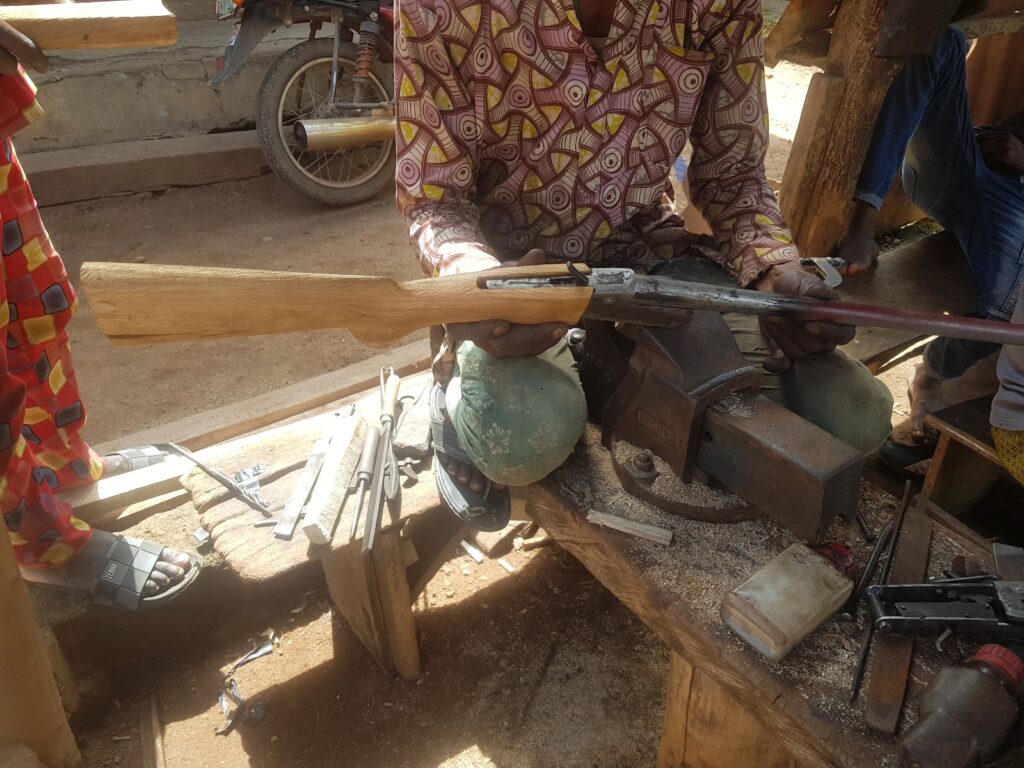
“If the government can make a regulation and legalise guns, it will be good for the protection of all Nigerians. We have hunters who come to us to make guns for them. Historically, hunters were the first line of defence, before vigilantes and then members of the Odua People’s Congress (OPC) in Southwest.
“The protection of local communities is in the hands of local hunters, and we make guns for them. Although English-made guns are expensive, if Nigeria allows blacksmiths, we will make it.”
“Guns don’t kill, it’s people who kill”
During our conversation in his residence, Amitolu Shittu, the field commander of Osun State Security Network codenamed Amotekun said “guns don’t kill, humans kill.”
“The government opened our gates to corruption and they brought all the vices we see today. It encourages our youths to go into violence. The youths have no standard education so they go into criminality and purchase guns the way they like. It is not a new thing. The moment we allow it to happen, it would be difficult to control. Even police officers exchange guns for money.”
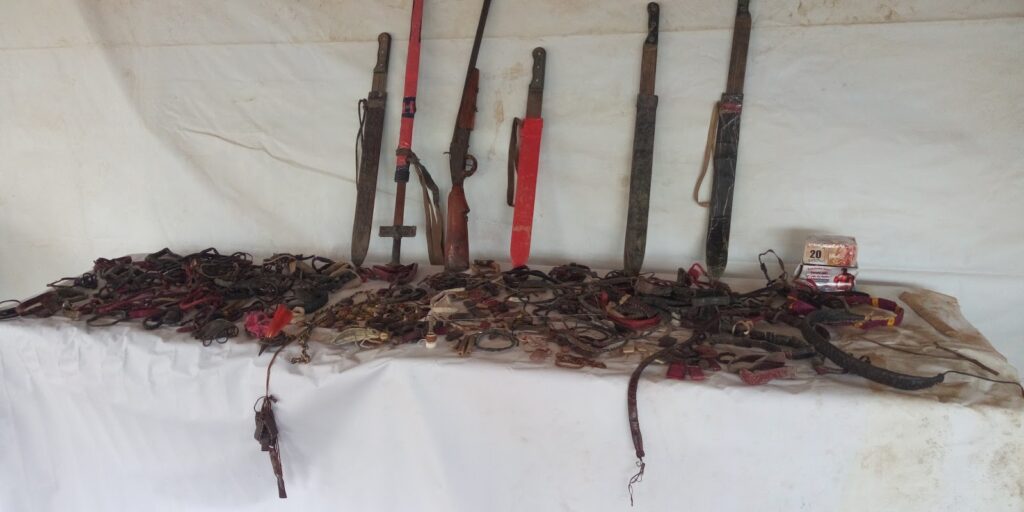
Asked if blacksmiths should be banned from making guns, he said “it shows how genius they are and we can be in the committee of nations that produce ammunition if they are encouraged and regulated.”
Support Our Journalism
There are millions of ordinary people affected by conflict in Africa whose stories are missing in the mainstream media. HumAngle is determined to tell those challenging and under-reported stories, hoping that the people impacted by these conflicts will find the safety and security they deserve.
To ensure that we continue to provide public service coverage, we have a small favour to ask you. We want you to be part of our journalistic endeavour by contributing a token to us.
Your donation will further promote a robust, free, and independent media.
Donate HereStay Closer To The Stories That Matter




